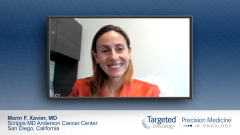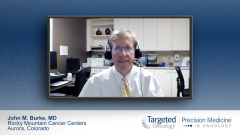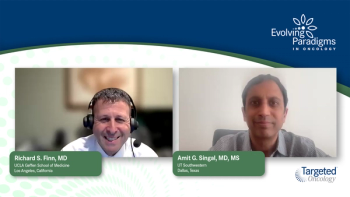
Anti-CD19 Targeted Therapy for DLBCL: Safety and Efficacy
Recommendations for managing patients with diffuse large B-cell lymphoma on tafasitamab.
Episodes in this series

Marin F. Xavier, MD: You were really good [talking about] the ADCC [antibody-dependent cell cytotoxicity] and ADCT [antibody-drug conjugate toxicity] tafasitamab with the mechanism of action. We went through that and went through the L-MIND, the First-MIND, and the Re-MIND trials. That covers tafasitamab-lenalidomide. Also, you were very kind to discuss the frontMIND study and what to look out for granted that we had early phase and not a lot of randomized data to report out for long-term follow-up.
We’ve got some efficacy response rates and safety information. I mentioned safety a little in that most of my experience with tafasitamab has been toxicity related to lenalidomide. There’s a 6% or 8% infusion reaction rate. I haven’t held the infusion for anything. I have to try to train my pharmacists that I’m getting the labs for the lenalidomide, don’t hold up to wait for the results for the tafasitamab. There are very few things that I’m holding the tafasitamab for. Of course, it’s a pan–B-cell depleter, and we want patients to get response from their vaccines for COVID-19, although maybe it’s moot in this population. I haven’t held it to get a COVID-19 shot. Do you have the same experience clinically with your toxicity and management of that for the combination?
John M. Burke, MD: I agree with everything you said, but I think a lot of the toxicity is from lenalidomide.
Transcript edited for clarity.







































